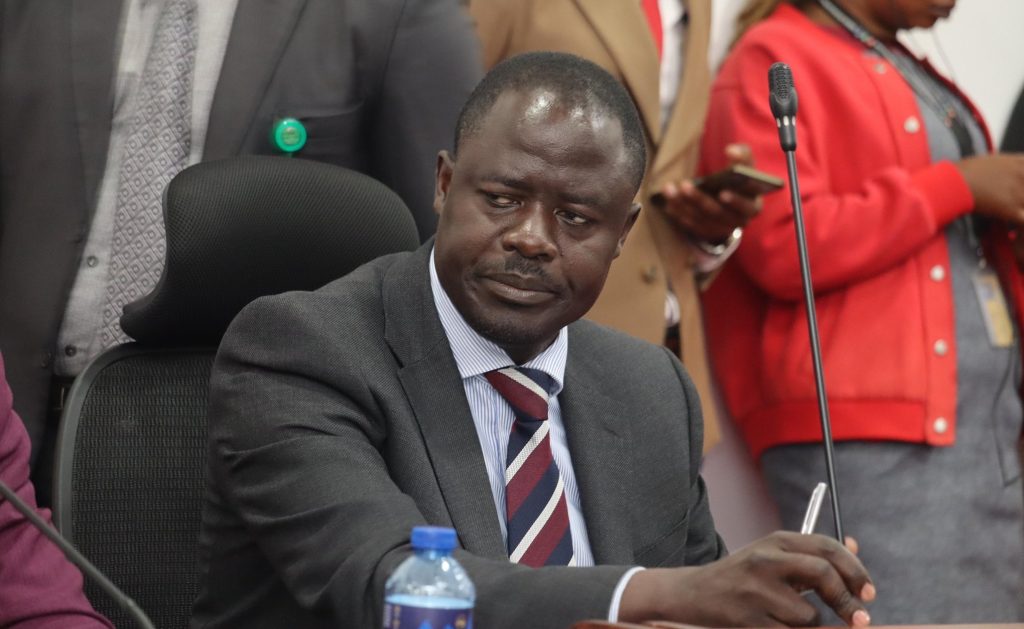Homa Bay Town Member of Parliament Peter Kaluma has issued a series of direct demands aimed at the incoming Independent Electoral and Boundaries Commission (IEBC) commissioners, emphasising the urgent need for a comprehensive overhaul of Kenya’s electoral systems to restore trust and eliminate fraud.
In a statement on X on Sunday, April 13, 2025, Kaluma began by calling for the complete collapse of the current voter register, which he described as “irredeemably adulterated” and unfit for use in future elections.
The MP said that the existing register is riddled with the names of deceased individuals and people who are registered multiple times, some up to five or even ten times.
According to Kaluma, this manipulation of the voter roll has allowed certain regions, which represent a small percentage of Kenya’s total population, to claim a disproportionately large share of the vote, thus distorting the true democratic representation of the country.
“The current voter register is full of dead people and individuals registered multiple times. Some people are registered up to 10 times,” Kaluma stated in his post, before pointing out that these fraudulent entries have contributed to an inflated voter count in certain areas, particularly in regions that hold a significant sway in national politics.
“This is why you hear people from one region — which comprises only about 10 per cent of Kenya’s population — shouting that they have over 30 per cent of Kenya’s voters and can, therefore, dictate who becomes Kenya’s president,” he said.
Kaluma further accused the IEBC of allowing these inflated voter numbers to persist, arguing that they enable rigging in the presidential vote.
He insisted that by 4.00 pm on election day, certain regions, thanks to the fraudulent entries, are able to cast all of the presidential votes allocated to them. This, he argues, is based on the names of deceased individuals and multiple entries in the voter register.
“By 4.00 p.m. on voting day, these regions cast all the presidential votes delivered to them based on the dead and multiple voter entries,” Kaluma stated, suggesting that the process is a deliberate and coordinated effort to manipulate the results.

Kaluma’s critique extended to the financial management of the IEBC, accusing the commission of inflating the cost of running elections through its reliance on a manipulated voter register.
He expressed alarm over the current demand by the IEBC for Ksh62 billion to conduct the upcoming elections, calling it a scheme to line the pockets of those within the commission.
“The current figures just grant the favoured regions the rigging range in the presidential vote,” Kaluma wrote, continuing, “IEBC is currently demanding Sh62 billion to conduct the next elections. It is all about ripping Kenya off dead while enriching the IEBC entrepreneurs.”
Moving on to his second demand, Kaluma called for a review of the constituencies and ward boundaries, but he was adamant that this process should not involve any changes to the existing boundaries.
He pointed out that any attempt to alter the boundaries would only spark legal disputes and unnecessary delays, which would jeopardise the timely conduct of elections.
“This process should confirm the existing electoral units and boundaries. Review doesn’t mean change,” he said. Kaluma was keen to stress that boundary delimitation is an emotive and contentious issue that often ends in litigation.
“We don’t have time for this, noting we are in the middle of the third year of elections,” he remarked, emphasising the urgency of focusing on other election-related preparations.
His third demand, perhaps the most contentious, was directed at foreign influence in Kenya’s elections.
Kaluma strongly urged the incoming commissioners to stop the IEBC from colluding with foreign governments and organisations, alleging that such partnerships often result in interference with the country’s electoral processes.
He argued that Kenya’s leadership should not be influenced or determined by foreign entities, asserting that “through elections, countries determine their leadership” and warning that foreign involvement compromises Kenya’s sovereignty.
“He who pays the piper calls the tune,” Kaluma stated, implying that foreign-funded organisations could exert undue influence on the outcome of Kenya’s elections. “We must therefore fund our elections ourselves,” he added, making it clear that he believes Kenya should take full control over its electoral processes, free from foreign influence or financial strings attached.